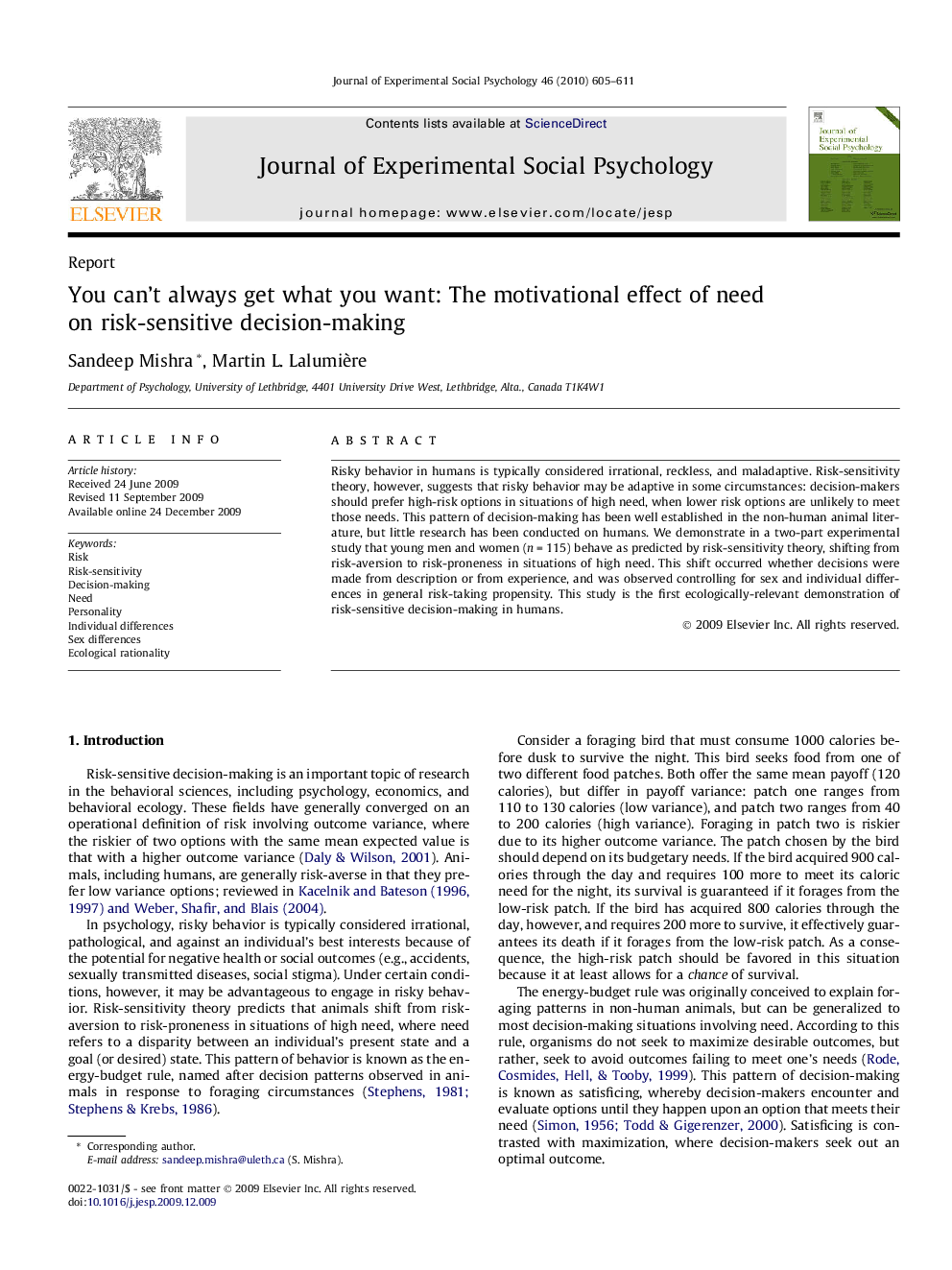| Article ID | Journal | Published Year | Pages | File Type |
|---|---|---|---|---|
| 948705 | Journal of Experimental Social Psychology | 2010 | 7 Pages |
Risky behavior in humans is typically considered irrational, reckless, and maladaptive. Risk-sensitivity theory, however, suggests that risky behavior may be adaptive in some circumstances: decision-makers should prefer high-risk options in situations of high need, when lower risk options are unlikely to meet those needs. This pattern of decision-making has been well established in the non-human animal literature, but little research has been conducted on humans. We demonstrate in a two-part experimental study that young men and women (n = 115) behave as predicted by risk-sensitivity theory, shifting from risk-aversion to risk-proneness in situations of high need. This shift occurred whether decisions were made from description or from experience, and was observed controlling for sex and individual differences in general risk-taking propensity. This study is the first ecologically-relevant demonstration of risk-sensitive decision-making in humans.
